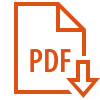Stay safe online - blog three - online banking

Protecting yourself when you go online is a necessity. With a world of information accessible at your fingertips, it is easy to get caught up in the ease of accessibility and on-demand information available. However, you don’t want your personal details to be easily accessible for everyone else. Our ‘stay safe online’ blog series will share tips that you can utilise going forward to protect yourself when interacting with the online world.
Today’s blog will cover:
Why is it important to stay safe when banking or buying online?
For many, the convenience of online banking or online shopping can mean that the security concerns are overlooked. If you wouldn't give your bank or card details to a stranger on the street then it’s unlikely you’d want to share them with the world wide web. Without being internet savvy, you could be sharing those important details with people who will take advantage of them.
What is online banking?
Banking online means accessing your bank account and carrying out financial transactions through the internet on your smartphone, tablet, or computer. This could be as simple as checking your balance, or more complex tasks like setting up direct debits or bank transactions.
It’s quick, usually free and allows you to do tasks, such as paying bills and transferring money, without having to visit or call your bank. Many banks also have free apps which let you use these services from your smartphone or tablet.
Many people also pay bills or purchase goods and services through the internet. It is important to be vigilant when doing so to ensure that no one else can get access to your information.
How can I keep my online account safe?
All banks take a lot of precautions to ensure all online accounts are safe. They do this by using encrypted websites and several authentication processes - including making you use a password to access your account. Here’s what you can do to keep your account safe:
- Check your bank statements often, if you notice any suspicious or unusual activity report it to your bank straight away
- Don’t share your banking information with anyone via email or over phone unless you are certain they are from your bank
- Do not use online banking or make any online purchases over public wi-fi as these connections are not as secure as using your own 3G/4G/5G connection or your own personal wi-fi at home
- Ensure your computer stays updated especially your operating systems, the browser you use to connect to the internet, and your anti-virus software
- When online banking you can use a credit card or a third party payment app such as Paypal that offers protection against scams and fraud
What do I do if something seems wrong?
If you notice anything strange on your account, or you accidentally make a payment to the wrong account, get in touch with your bank as soon as possible. They may be able to freeze any outgoing payments and advise you on next steps.
If you get any communication from TAB that seems strange or out of place please contact us immediately to make sure before entering any personal information.
Stay tuned to read more about staying safe online in this blog series.
This online blog series is an introduction to online safety and designed to raise awareness of the challenges of interacting online. This article is for information only and does not constitute advice or a personal recommendation. When it comes to online activity it is important to be cautious and seek appropriate professional advice.




































